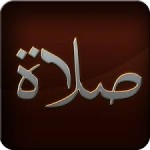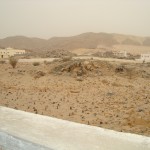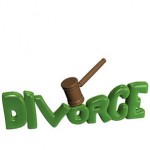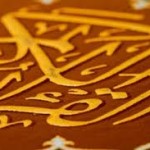Is it permissible to use products which stimulate hair growth?
QUESTION:
Salam aleykum. Is using products that makes hair grow faster and longer changing the creation of Allah or is it considered haircare? Thus is such product permissible or not. I am asking because it made my hair grow long in some areas where I always had short hair and I know a man who even grew a beard with it when he was intially beardless.
ANSWER:
In the Name of Allah, the Most Gracious, the Most Merciful.
As-salāmu ‘alaykum wa-rahmatullāhi wa-barakātuh.
In principle, Islām encourages that there is no alteration in the natural form of creation by Allah. Accordingly, the act of changing the creation of Allah is forbidden in Sharῑ’ah. [1]
However, in the case where there is a perceived defect, Sharῑ’ah permits the removal of such a defect by means of treatment, when there is no distortion to the human body involved in the process. [2]
Hence, it is permitted to use hair-growth products (without any unlawful ingredients) to re-grow hair and eradicate baldness, in such a case where it is considered a defect. If there is no perceived defect, one should avoid adopting such treatments.
And Allah Ta’āla Knows Best
Concurred by: Hanif Yusuf
References
[1]
In essence, changing the creation of Allah (Taghyīr Bi Khalqillah) can be defined as: The addition or removal of something to/from a body part for cosmetic purposes in such a way that the addition or removal becomes permanent and it seems that the individual was born in this way. Consider the following statements of the scholars that indicate to this definition:
كل ما يفعل في الجسم من زيادة أو نقص من أجل الزينة بما يجعل الزيادة أو النقصان مستمرا مع الجسم وبما يبدو منه أنه كان في أصل الخلقة هكذا فإنه تلبيس وتغيير منهي عنه وأما ما تزينت به المرأة لزوجها من تحمير الأيدي أو الشفاه أو العارضين بما لا يلتبس بأصل الخلقة فإنه ليس داخلا في النهي عند جمهور العلماء
[Takmilah Fath al-Mulhim: 5/116: Dār al-Qalam]
ثم قيل هذا المنهي عنه إنما هو فيما يكون باقيا لأنه من باب تغيير خلق الله تعالى فأما مالا يكون باقيا كالكحل والتزين به للنساء فقد أجاز العلماء ذلك مالك وغيره
[Tafsīr al-Qurtubī: 5/393: Dār al-Kutub al-Misriyyah]
فالأول رياضات تضعف البهيمية كالصَّوْمِ والسهر، ومن النّاس من أفرط، واخْتارَ تَغْيِير خلق الله مثل قطع الآت التناسل، وجفيف عُضْو شرِيف كاليَدِ والرجل، وأُولَئِكَ جهال العباد، وخير الأُمُور وسطها،
[Hujjatullah al-Bālighah: 1/112: Dār al-Jīl]
یہاں تغییر خلق کا ذکر کرنے سے پہلے جانوروں کے کان چیرنے کا تذکرہ کیا گیا ہے جس سے اندازہ ہوتا ہے کہ قرآن نے جس "خلق" میں تغییر کي مذمت کي ہے اس سے مراد جسماني اور خلقي ساخت ہے۔۔۔بہر حال مفسرین نے اس کي جو تشریح کي ہے اور قرآن میں جس موقع پر اس کا ذکر کیا گیا ہے اس سے مجموعي طور یہ بات سمجھ میں آتي ہے کہ کسي بھي چیز میں ایسي تبدیلي جس سے اس کي خلقت کا اصل مقصد فوت ہوتا ہو یا اس سے ایسا کام لینا جو اس کے فطري تقاضوں کے خلاف ہو "تغییر خلق" ہے
[Jadīd Fiqhī Masā’il: 5/67: Zam Zam]
Taghyῑr bi Khalqillah (تغيير بخلق الله) is forbidden in Sharῑ’ah. Consider the following ‘Āyāt, ‘Ahādith and statements of the Jurists in this regard:
وَلَآمُرَنَّهُمْ فَلَيُغَيِّرُنَّ خَلْقَ الله
“And I (the devil) will command them and they will change the creation of Allah”
Similarly, Ḥaḍrat ‘Abdullah ibn Mas’ūd Raḍiyallāhu ‘Anhu is reported to have stated:
عن ابن مسعود قال: لعن الله الواشمات والمستوشمات والمتنمصات والمتفلجات للحسن المغيرات خلق الله، ما لي لا ألعن من لعن رسول الله صلى الله عليه وسلم وهو في كتاب الله
[Bukhāri: 5948]
Mufti Rashīd Ahmed Gangohi (may Allah have mercy upon him) and others indicate that the prohibition of those women etc that remove hair from their faces including those who artificially create spaces between their teeth to look beautiful etc is due to deception and portrayal of non-existing beauty etc. Accordingly, in general circumstances, to have such changes made unnecessarily, for increase of beautification, is prohibited.
ووجه النهي في المتنمصات والواصلات تغرير الخلق مع تغيير خلق الله، فكانت نساء العرب تغالي مهورها على السن والجمال، كما تغالي على النسب والكمال، وفي الوصل وكذا التنمص تلبيس السن، وكذلك ففيهما إظهار ما ليس فيها من الجمال
[al-Kawkab al-Durrī: 6/349 al-Arwaqah]
والنمص: نتف الشعر من الوجه تزيينا وهو حرام
[Lam’āt al-Tanqīh: 7/411: Maktabah Rahmāniyyah]
اسلام کا نقطہ نظریہ ہے کہ جسم اللہ کی امانت اور اس کا پیکر اللہ کی تخلیق کا مظہر ہے جس میں کسی شرعی اور فطری ضرورت کے بغیر کوئی خود ساختہ تبدیلی درست نہیں، اسی وجہ سے رسول اللہ صلی اللہ علیہ و سلم نے مصنوعی طور پر بال لگانے، خوبصورتی کے لیے دانتوں کے درمیان فصل پیدا کرنے کو ناجائز ، قابل لعنت اور اللہ کے خلقت میں تغیر قرار دیا ہے،
اس لیے ظاہر کہ محض زینت اور فیشن کی غرض سے اس قسم کا کوئی آپریشن اور جسم میں کوئی تغیر قطعا درست نہ ہوگا جیسا کہ آج کل ناک ، پستان وغیرہ کے سلسلہ میں کیا جاتا ہے
[Jadīd Fiqhī Masā’il: 1/312: Zam Zam]
[2]
Nonetheless, where there is a perceived defect such that one’s spouse may be unhappy, or a genuine medical reason to do so, there is scope for the woman to remove the hair or create spaces between her teeth etc, especially when such treatment is not harmful in any way. Consider the following statements of the scholars in this regard:
قال أبو جعفر الطبري في حديث ابن مسعود دليل على أنه لا يجوز تغيير شي من خلقها الذي خلقها الله عليه بزيادة أو نقصان التماس الحسن لزوج أو غيره سواء فلجت أسنانها أو وشرتها أو كان لها سن زائدة فأزالتها أو أسنان طوال فقطعت أطرافها وكذا لا يجوز لها حلق لحية أو شارب أو عنفقة إن نبتت لها لأن كل ذلك تغيير خلق الله
[Tafsīr al-Qurtubī: 5/393: Dār al-Kutub al-Misriyyah]
الاية تضمنت حرمة تغيير خلق الله على وجه العبث، وهذا النوع من الجراحة فيه تغيير للخلقة على وجه العبث
[Ahkām al-Jarāhah (al-Shinqītī): 200: Maktabah al-Sahābah]
لعنت الواصلة والمستوصلة والنامصة والمتنمّصة والواشمة والمستوشمة من غير داء
[Abū Dawood: 4170]
ومن تكون لها سن زائدة فتقلعها أو طويلة فتقطع منها أو لحية أو شارب أو عنفقة فتزيلها بالنتف ومن يكون شعرها قصيرا أو حقيرا فتطوله أو تغزره بشعر غيرها فكل ذلك داخل في النهي وهو من تغيير خلق الله تعالى قال ويستثنى من ذلك ما يحصل به الضرر والأذية كمن يكون لها سن زائدة أو طويلة تعيقها في الأكل أو إصبع زائدة تؤذيها أو تؤلمها فيجوز ذلك
[Fath al-Bāri: 10/377: Dār al-Ma’rifah]
ان احتاجت الى الوشم للمداواة جاز و ان بقي منه أثر وقيل متعلق بكل ما تقدم. أي: لو كان بها علة فاحتاجت الى أحدها لجاز قال النووي: فيه إشارة الى أن الحرام هو المفعول لطلب الحسن، أما لو احتاجت اليه لعلاج أو عيب في السن و نحوه فلا بأس
[Badhl al-Majhūd: 12/199: Dār al-Bashā’ir]
قال: (للحسن) يشير إلى أنه لو فعله لعلاج أو عيب في السن لا بأس به
[Lam’āt al-Tanqīh: 7/412: Maktabah Rahmāniyyah]
ولعله محمول على ما إذا فعلته لتتزين للأجانب، وإلا فلو كان في وجهها شعر ينفر زوجها عنها بسببه، ففي تحريم إزالته بعد، لأن الزينة للنساء مطلوبة للتحسين، إلا أن يحمل على ما لا ضرورة إليه لما في نتفه بالمنماص من الإيذاء
[Radd al-Muhtār: 6/373: Dār al-Fikr]
إذا أراد أن يقطع إصبعا زائدة أو شيئا آخر...إذا كان الغالب على من قطع مثل ذلك الهلاك، فإنه لا يفعل لأنه تعريض النفس على الهلاك، وإن كان الغالب هو النجاة، فهو في سعة من ذلك
[Fatāwa Qadhī Khān: 3/297: Maktabah al-Faysal Deoband]
وأما قطع الإصبع الزائدة ونحوها: فإنه ليس تغييرا لخلق الله وإنه من قبيل إزالة عيب أو مرض فأجازه أكثر العلماء خلافا لبعضهم
[Takmilah Fath al-Mulhim: 5/116]
وإنَّما الصَّوْم والسهر بِمَنزِلَة دَواء سمى يجب أن يتَقَدَّر بِقدر ضَرُورِيّ
[Hujjatullah Al-Bālighah: 1/112: Dār al-Jīl]
انسانی جسم ایسے تصرفات جو اپنی خیال میں محض زینت کے قبیل سے ہوں درست نہیں، ہاں ازالہ عیب جائز ہے مثلا ٹوٹے ہوۓ دانت کی جگہ دوسرا دانت لگوانا جائز ہے کیونکہ یہ ازالہ عیب ہے اسی طرح نکلے ہوۓ دانتوں کو برابر بہی درست ہے، مصنوعی ناک کان لگوانا بہی درست ہے تاکہ عیب دور ہو جاۓ لیکن دانتوں کے فاصلہ پیدا کرنا درست نہیں ہے کیونکہ یہ اس کے خیال میں حسن ہے جس کو فرضی حسن کہہ سکتے ہیں حقیقت سے اس کا کوئی تعلق نہیں ہے
[Fatāwa Dār al-Uloom Zakariyyā: 6/809: Zam Zam]
زائد انگلي کا کٹوانا؟ الجواب: کٹوانا بھي جائز ہے رضاۓ الہي کے خلاف نہیں مگر تکلیف بھي ہوگي اپنے تحمل کو دیکھ لیں
[Fatāwa Mahmūdiyyah: 18/334: Jāmi’ah Farūqiyyah]
فقہی جزئیات کو دیکہنے سے معلوم ہوتا ہے کہ علاج ومعالجہ کے باب میں فقہاء نے ایک گناہ زیادہ وسعت سے کام لیا ہے اور یسر اور سہولت کو راہ دی ہے
[Jadīd Fiqhī Masā’il: 5/103: Zam Zam]
Thus, it can be concluded that correcting an abnormality or defect is not regarded as Taghyῑr bi Khalqillah (تغيير بخلق الله) and is not prohibited. Moreover, this is emphasised by Mawlana Rasheed Ahmed Gangohi (may Allah have mercy upon him) and Mufti Rashid Ahmed Ludhyanwi (may Allah have mercy upon him) who indicate that restoring one’s features to the normal appearance is permissible, as is the case with the scenario in question.
فلا بأسا بأخذ ما نبت عليها من الشعر إذا لم يك فيه تغرير لأحد
[al-Kawkab al-Durrī: 6/349: al-Arwaqah]
ابرو بہت زیادہ پھیلے ہوئے ہوں تو ان کو درست کر کے عام حالت کے مطابق کرنا جائز ہے۔
[Ahsanul Fatāwa: 8/76: H.M. Saeed]
DISCLAIMER:
The Ask Our Imam site hopes to respond to queries relating to Islamic law. It is not an Islamic Law Shari`ah Court. The questions and answers found on this website are for educational purposes. However, many of the rulings rendered here are distinct to the specific scenario and thus should be read in conjunction with the question and not taken as a basis to establish a verdict in another situation or environment. This site bears no responsibility in these responses being used out of their intended context, nor to any party who may or may not follow the responses given and is being hereby exempted from loss or damage howsoever caused. None of the responses rendered may be used as evidence in any Court of Law without prior written consent of Our Imam. Any reference to another website or link provided in our responses or article should not be taken as an endorsement of all the content on that website; in fact, it is restricted to the particular material being cited.
Posted in Halaal & HaraamMiscelleaneous on 10th Dec 2021 by Our Imam | 724 Views





